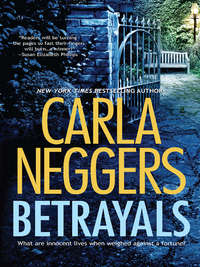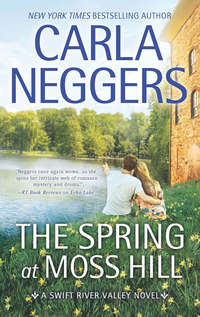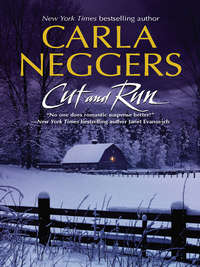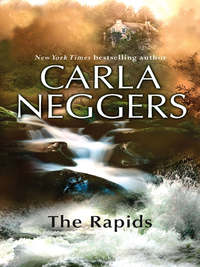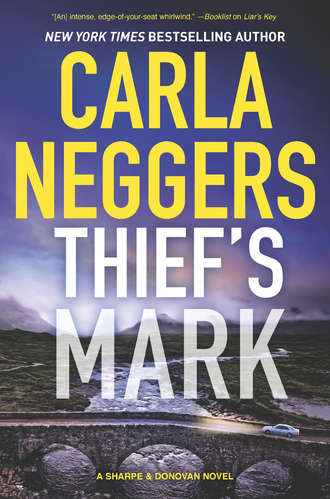
Полная версия
Thief's Mark
Eugene shook his head. “I asked him. He said he didn’t know but he wasn’t a good one to ask. He was only a tot when his mother moved to the US with him. I suppose his father could have painted it, but he was a tortured soul—I can’t believe he’d have produced something this sweet.”
“Anthony’s been dead for sixty years, too,” Cassie added. “This cottage was pretty much in ruin then. Freddy had it restored but it’s been decades since anyone’s really used it. It’s a good thing Tony isn’t particular. Anyway, I suppose someone could have discovered the painting somewhere else and tucked it in the closet and forgot about it.”
Eugene squatted down for a closer look at the painting. “You can almost feel the sun on the loch.”
“I really do love it,” Cassie said. “If Anthony painted it, maybe Freddy or Posey found it after his death and couldn’t bear to keep it but couldn’t bear to throw away it away, either.”
“That would make sense.” Eugene rose, his eyes still on the captivating scene. “It’s not discussed but everyone knows Anthony Balfour died of alcoholism. Well. That’s not a cheerful subject any day but especially today, given what happened this morning.”
“And it’s such a cheerful painting,” Cassie said with a sigh. “Well, I don’t care who painted it, really. I was just curious. Freddy Balfour’s housekeeper could have bought it at a yard sale and a ten-year-old painted it, and it wouldn’t matter—I love it. I’m going to frame it and hang it in here when we’re done with renovations. I’m sure Mum and Dad will love it, too.”
Henrietta followed Cassie and Eugene out of the cottage. Cassie explained she’d invited Henrietta to dinner. Eugene seemed to be as keen on the idea. “The boys always love to see you,” he said cheerfully. “They got into nettle the other day. You can explain it to them.”
“Every country girl and boy needs to understand nettle,” Henrietta said. “I learned the hard way myself when I decided to investigate the field across the stream on one of my visits with Aunt Posey. It’s like the nettle was lying in wait for me.”
“It’s brutal stuff,” Eugene said, grinning at her. “I remember that day. Both your legs were covered in welts. Didn’t Oliver rescue you?”
“He thinks he did. He was twelve and I was nine.” Henrietta grinned. “It was the worst.”
Eugene said he’d see her later and returned to the cottage, but as Henrietta started back to the gate, she noticed worry return to Cassie’s face. “Let us know if you hear any news about the investigation, won’t you?” She motioned vaguely toward the compost pile. “I’ll get back to work before it rains.”
Henrietta went back through the gate. As she brought her lunch dishes to the kitchen, she contemplated polite ways to get out of dinner. She wanted to go. She should go. Be with friends after a difficult day. At the same time, she didn’t want to go.
The definition of ambivalent.
She’d shower and go see what the FBI agents wanted.
5
A rail-thin man in his fifties introduced himself as Detective Inspector Peter Lowe and took Emma and Colin through what he knew so far. The body had been removed, but the forensics team was still working on the immediate scene. “We haven’t identified the deceased yet,” Lowe said as they stood on the edge of the taped-off area around the side entrance. “He didn’t have a wallet or phone on him. We don’t know how he got onto the property. We haven’t found a vehicle. He could have walked. We’re checking the village.”
“What shape’s the house in?” Colin asked.
“Untouched as far as we can tell so far. All the blood is right here. He didn’t go far once he was wounded.”
“How was he wounded, do you know?”
The DI shook his head. “He wasn’t shot. We know that much. The artery was in bad shape. It appears to have been cut with an extremely sharp instrument. There’s no guarantee it was a survivable injury even with applied pressure and timely medical intervention.” Lowe’s eyes narrowed on Emma. “Now, Special Agent Sharpe, tell me about your call from Mr. York.”
Emma did so, repeating Oliver’s words verbatim. It wasn’t as if there’d been many to remember. The DI twisted his mouth to one side, taking in the information. He and the investigative team had been professional and courteous, but it was clear they didn’t appreciate two FBI agents turning up, even with MI5 having paved the way—through whatever means, direct or indirect. Emma understood their reluctance. She and Colin had a personal and professional history with Oliver that could help, but it also complicated matters. The personal history irked Colin but Oliver deliberately exaggerated their relationship. Despite his attempts to forge a friendship, Emma considered her relationship with their unrepentant art thief entirely within her role with the FBI.
“And this break-in at your grandfather’s house in Dublin?” the DI asked. “Relevant?”
“I don’t know,” Emma said. “The Irish police are investigating.”
Lowe nodded. “We’ll speak with them.”
Colin watched two members of the forensic team finishing up by a stone bench across the driveway from the entrance. “How close are you to identifying the deceased?”
“Not close enough. We’ll know when we know. I don’t guess, Special Agent Donovan.”
“Duly noted. Thanks for your time.”
They left the DI to his work and walked down to the dovecote, taking the same route DI Lowe had described Ruthie Burns had taken from the house to alert Martin Hambly and Henrietta Balfour. The gray weather only seemed to make the sloping fields look greener, a contrast to the grim events earlier in the day. Emma had been here in February on FBI business, winter in the Cotswolds different but still beautiful.
“I smell roses,” she said.
Colin shook his head. “Not me.”
“What do you smell?”
“Sheep.”
She smiled, appreciating the light moment. She watched a lamb prance in the grass on her right, near the fence. She could imagine whiling away an afternoon out here, enjoying the views of bucolic fields, listening to sheep baaing. She doubted Oliver made much of an income off the farm, but she knew it met expenses. Her grandfather had given her that information when he’d visited in January.
A police car was just down the lane past the dovecote, an officer at the wheel. Emma was familiar with the dovecote, built to house pigeons at a time when they were a pricey, sought-after delicacy. Pigeons had fallen out of favor on the dinner plate, and now only a comparatively few dovecotes remained. The York dovecote was on the smaller side as dovecotes went, but it was well-suited to its modern purpose as a potting shed. Ruthie Burns was out front, frowning at the mess Emma assumed Henrietta and Martin had left behind—bags of potting soil and composted manure, a bucket of what appeared to be freshly dug loam, an array of garden tools and a cracked terra-cotta pot. It was as if the ordinary work of the day would resume at any moment.
The DI had let them know Ruthie wasn’t doing well emotionally, but she’d agreed to talk with them. “Please, ask whatever questions you’d like,” she said even before Emma could greet her. “I’d be happy to answer them. DI Lowe said I should.” She paused, her eyes red and puffy from tears, her skin ashen from the shock of the morning. “You and Special Agent Donovan are Oliver’s friends.”
Emma didn’t voice any objection to the housekeeper’s characterization of her and Colin’s relationship with her missing boss. Now wasn’t the time, and she saw that Colin agreed. “We want to help if we can,” she said.
“I understand. I’m sorry you’re not here under better circumstances.”
“I am, too.”
“Mr. York didn’t know you were coming?”
“We called this morning and left a voice mail. I don’t know if he received it.”
“You called on his mobile?”
Emma nodded. “Yes.”
Ruthie bit her lower lip, crossed her arms tight on her chest and lowered them again. “I don’t know what to do with myself—stay here, go home, be alone, be with people. I can’t make sense of today.” She spoke more to herself than to Emma. “I keep seeing the blood—so much blood—and Mr. York, desperately trying to help. You hear about such things but never expect to see something like it yourself.”
Ruthie pointed up the lane to a thickset man shambling toward the dovecote. “That’s my son, Nigel. He’s a mechanic.”
“Was he here this morning?” Emma asked.
“He was, yes. He was at the barn, working on one of the tractors.”
Nigel reached the dovecote, coming up the rudimentary flagstone path to the entrance. He rubbed the back of his hand across his jaw and its two-day stubble of beard, mostly dark but splotched with gray. No sign of gray in his thick, fair, curly hair. He looked to be in his early forties, a solidly built man in oil-smeared work clothes. He addressed his mother. “Police said I should come down here and tell the FBI agents what I saw this morning. That all right with you, Mum?”
“Of course. Do what the police say.”
Colin sat on a bench next to the front door, a gesture, Emma suspected, to make him look less intimidating. “You were here on the farm this morning, Nigel?”
“Yes, I got here about eight o’clock. I was working on the old tractor down at the barn.” He shoved his hands in his pockets, clearly awkward and uncomfortable in his role as witness. “I came to tell you Mr. York is gone.” Nigel reddened to his ears. “Not dead. I don’t mean that. He left in his car a few minutes before the police got here. No more than that. I saw him myself.”
“Do you mean you saw the car or that you saw Oliver?” Colin asked.
“I saw them both,” Nigel said without hesitating. “Mr. York was driving. I didn’t see anyone with him.”
Ruthie twisted her hands together, as if she needed to release tension before she hit someone. “Are you sure it was Mr. York?”
“I am. No question.”
Colin put a foot on the rim of a bucket of dirt. “Where exactly did you see the car?”
Nigel pointed a thick, callused finger down the lane, in the direction of the barn, which wasn’t visible from the dovecote. “The west gate. He drove past the barn. It’s on this lane.”
“It meets up with the main road to Chipping Norton,” Ruthie added. “The public route continues across the road through a hay field but it’s strictly a walking trail. It can’t handle a vehicle.”
“I didn’t see which way Mr. York went once he reached the road,” Nigel said. “Even if I’d thought to look, I wouldn’t have been able to see from where I stood.”
Emma considered his response. “And where was that?”
“I told you—” Nigel stopped, took in a breath. “In front of the barn door facing the lane. I was up on the tractor, heard the car and took a look, since it’s odd to have the Rolls-Royce down there.”
Colin toed a small pile of spilled soil. “You recognized the Rolls-Royce by the sound of its engine? Before you saw it?”
“I did. Always’ve had an ear for an engine. I told the police.”
“They were all right with it,” Ruthie said.
Colin’s eyes narrowed slightly, and Emma knew he, too, had heard the note of defiance in Nigel’s tone and the protectiveness in Ruthie’s. “How did Mr. York look to you?” she asked.
Nigel picked up an open bag of soil that had fallen on its side and stood it upright against the dovecote. “Same as always,” he said, stepping back. “Only unusual thing was seeing him driving down by the barn. He didn’t look as if he’d been hurt or was bloody or in pain, anything like that. You know. Given what happened up at the house.”
“And the dead man?” Colin asked. “Did you see him?”
“I didn’t see anyone else, sorry. I got to the farm at ten and went to work. I drove. I know you’ll be asking. I live in the workers’ rooms at the pub. I do some work there, too. It’s temporary. My ex lives in the village with our two kids.” Nigel again shoved his hands into the pockets of his work jacket. “I’m saving for a place of my own. I’ve worked for the Yorks on and off since I was in my teens. Mr. Hambly can vouch for me. So can my mum, but, y’know—” He grinned at her. “She’s my mum.” He shrugged his big shoulders. “That’s it.”
It was clear he’d finished his story. “Thank you, Nigel,” Ruthie said. “If you think of anything else, you’ll notify the police straight away.”
“I will. They said I can go home but I can stay if you need me.”
“No, I’ll be all right. I’ll head home soon. It’s been a rough day, and I’ve no idea when the police will finish. Go on home.”
“I’ll come by and stay with you. I don’t want you home alone.” Nigel shifted to Emma. “I remember you from this winter. The man who died—he’s not one of yours, is he?”
“No, he’s not,” she said. “Any idea who he is, Nigel?”
“Not a clue. It was just a day like any other until I saw the Rolls-Royce and then my mum texted me after she called 999.” He gave an apologetic look. “Sorry I couldn’t do more to help.”
“It’ll be all right, Nigel,” Ruthie said.
He left without comment and started back up the lane toward the barn. His mother turned to Emma, gesturing vaguely toward her son. “I’ll go now, too. You ring me if you need anything else.”
“Of course,” Emma said. “Thank you.”
Ruthie Burns nodded grimly, then hurried after her son. “You’d think he was twelve,” Colin said.
Emma didn’t disagree. “It’s been a rough day. Brings out a mother’s protective instincts, maybe.”
“My mother was never that protective. She sure as hell won’t be when my brothers and I hit our forties.”
“There are four of you. She’d have worn herself out being protective.”
Martin Hambly walked up from the police car, where he’d been chatting with the officer, obviously killing time until Ruthie and Nigel left. “Were they any help? I imagine not much. The officer told me Nigel saw Oliver go toward the west gate in his car. What terrible witnesses we are. I feel as if I missed a thousand important clues that by now are beyond my grasp. To think...” He glanced at the half-filled terra-cotta pot. “To think the day started with the delightful memories this old flowerpot brings. Henrietta found it this morning. She’ll be along soon. Would you two like to sit down while you wait for her? You can take the bench. There’s not much room inside, but we can go in if you’d like.”
Emma shook her head and noticed Colin didn’t make a move for the bench, either.
Martin walked to the edge of the grass and looked at the green, sheep-dotted pasture that sloped up to the elegant farmhouse. “I hate that the police and their forensic teams have been crawling through the place. By now they must know more about what happened here this morning than I do.”
“Do you have any idea where Oliver might be?” Emma asked.
He turned to her, the strain in his face unmistakable. “None, I’m afraid.”
Colin studied him. “Would you tell us if you did?”
Martin shrugged. “Depends, doesn’t it?” He nodded to the bucket next to Emma. “I dug that dirt myself this morning,” he said absently.
“Here?” she asked.
“In back.” He pointed vaguely behind him. “I was preoccupied with other matters this morning. Ordinary matters. Now...” He paused. “The police have cleared the body, but you’ve spoken with them.”
His tone was laden with suspicion and doubts, but he didn’t go further. Emma wouldn’t be surprised if he guessed that MI5 had paved the way for her and Colin to be here. She pointed at the bucket. “It looks like good dirt.”
“That’s what I told Henrietta. She and Oliver have known each other since they were children.”
“They’re friends?”
“I wouldn’t go that far. The Balfours have deep roots in the village but Henrietta only moved here a few months ago. She and Oliver aren’t always here at the same time. He’s not...well, you know. He doesn’t often seek the company of others. Henrietta lived in London until March, but as I understand it, she and Oliver only saw each other there once or twice.”
“Was she a garden designer in London?” Emma asked.
“She worked in a financial office.”
Martin inhaled and let out his breath slowly, shutting his eyes, as if he was meditating. Emma remembered when he’d greeted her, Colin and Matt Yankowski last fall at Oliver’s Mayfair London apartment. From the moment Martin had opened the door to three FBI agents, he’d kept a professional distance, never admitting or denying what he knew or suspected about Oliver’s secret life as a thief. Emma was convinced it was a lot, if not everything.
“We look forward to talking with Ms. Balfour,” Emma said. “Are you concerned Oliver was hurt or kidnapped this morning?”
“No,” Martin said without hesitation. “I can’t explain why. I’m just not. The police haven’t found anything to indicate he was injured or taken against his will. And with the car gone...” He didn’t finish, the ending to the sentence obvious. With the Rolls-Royce gone, it looked as if Oliver had taken off voluntarily and deliberately before the police had arrived. “The police have little to go on at the moment,” Martin added finally. “The house isn’t alarmed. There’s no video of the incident. Only Ruthie and Oliver seem to have been at the house when it happened.”
With a burst of energy, Martin started tidying up the area in front of the dovecote, grabbing garden tools and setting them inside by the worktable. He left the door open and came out and grabbed the bags of soil. Emma decided it was best not to offer to help. Given his employer’s ways, Martin was accustomed to running the show at the farm, and probably in London, too. He would want to be useful in some small way and reassert a sense of control.
“How long were you down here before Oliver arrived?” she asked.
“Here at the potting shed? Forty minutes.” Martin spoke with certainty as he stood in front of the dovecote door. He tapped his watch. “I happened to look at the time. Oliver stayed perhaps ten minutes.”
“And the gardener—Henrietta Balfour? Was she here when you arrived?”
“No. I got here first. She’d been out back yesterday and wanted to show me the flowerpot she’d found. We carried it around front. I went out back again to dig loam from the hillside while she gathered her potting supplies. Then Oliver came down from the house.” Martin paused. “And Henrietta’s a garden designer, not a gardener. She’ll tell you herself.”
“I see,” Emma said.
Colin peered through a small window into the dovecote. “Did Oliver say whether he’d come straight from the house?”
“No, he didn’t, not specifically, but where else would he have come from?”
“Pasture, barn, another outbuilding, one of the cottages.”
Martin held up a hand. “Point taken.” He grabbed the rest of the tools and set them inside. He shut the door behind him, but not tightly, and dusted off his hands. “That’s done, then.”
“How long after Oliver left here did Ruthie Burns alert you?” Emma asked.
“Five minutes or so. I didn’t check my watch but it wasn’t more than that. Henrietta might know.” He sounded stronger, and his color was better. “I assume she’s walking here. She didn’t have her car this morning and the police didn’t discourage her from walking home. They haven’t said they’re investigating the death as a homicide. It could be a terrible accident, couldn’t it?” He sighed. “I know. Not for you to say.”
Colin returned to the bench, stretching out his thick legs. “The police will have a better idea of what happened once they have autopsy results. They’ll figure it out.”
“We’ve had nasty accidents on the farm,” Martin said. “Years ago a worker lost a finger. I can’t see how an accident this bloody and catastrophic could happen so close to the house. The police didn’t find blood inside the house, at least that I’m aware of. It can’t be just one of those things for a man to incur a cut that causes him to bleed to death.”
“Oliver could have found him outside after he’d been cut, when it was too late to put pressure on the wound to do any good,” Colin said. “A cut brachial artery can be repaired.”
“Death isn’t inevitable?”
“It is if you don’t stop the bleeding and get help fast. I’m not a doctor and I can’t say what happened this morning.”
Martin perked up. “Oliver is trained in martial arts. He might have known what to do in such a situation but was simply too late. If the man attacked him, Oliver’s martial arts training would have kicked in. He’d have defended himself, but not...” Martin went pale. “Not in such a grisly fashion.”
Emma plucked a dried lobelia leaf from a pot and tossed it into the grass. “Do you have any idea when and where the injury to this man occurred?”
Martin shook his head, squinting as if he was envisioning the scene. “I didn’t see a weapon—a sharp instrument or anything like that—but the cut must have occurred close to where Henrietta and I found him. I would think it happened moments before Ruthie, before Oliver...” Martin jerked his chin up. “You don’t think I killed this man, do you?”
“Take us through your morning, if you would,” Emma said gently. “From when you woke up until the police arrived.”
“Please sit, Agent Sharpe,” he said. “You two make me nervous enough as it is.”
Emma smiled and complied, sitting next to Colin on the bench. He crossed his ankles and gave a slight smile, in a deliberate effort, she suspected, to look less threatening. Martin needed to relax and focus on the details of his morning, not on his audience.
Конец ознакомительного фрагмента.
Текст предоставлен ООО «ЛитРес».
Прочитайте эту книгу целиком, купив полную легальную версию на ЛитРес.
Безопасно оплатить книгу можно банковской картой Visa, MasterCard, Maestro, со счета мобильного телефона, с платежного терминала, в салоне МТС или Связной, через PayPal, WebMoney, Яндекс.Деньги, QIWI Кошелек, бонусными картами или другим удобным Вам способом.






